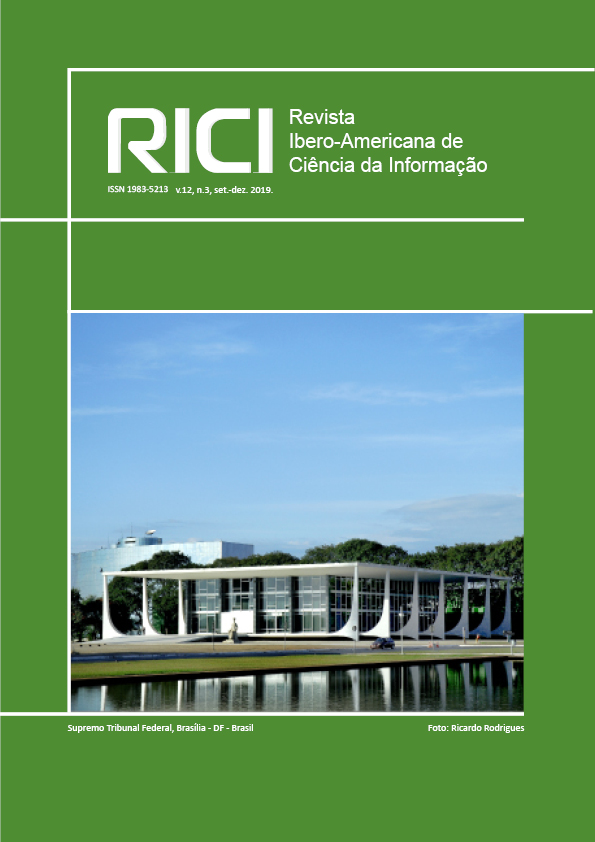El método de la cultura cruzada en la investigación en ciencias de la información
DOI:
https://doi.org/10.26512/rici.v12.n3.2019.10675Palabras clave:
Método de la Cultura Cruzada. Ciencia de la Información. Equipo Cultural.Resumen
Observar las divergencias y las similitudes culturales puede traer beneficios a las comunidades y generar un desarrollo significativo. El objetivo del estudio fue verificar el método de Cross Culture y sus aplicaciones, como una metodología innovadora, en la Ciencia de la Información. La investigación tiene un enfoque cualitativo, de tipo descriptivo y exploratorio, utilizando el método de Investigación Bibliográfica para recopilar datos en bases de datos nacionales e internacionales de Ciencias de la Información. Los resultados mostraron que el área, todavía, no explora el método y que la mayoría de las publicaciones sobre el tema se realizan internacionalmente, en el campo de la gestión, la mediación y el uso de la información. La base de datos en la cual los artículos fueron más utilizados de la metodología de cultivos cruzados es la Library and Information Science Abstract. El estudio concluyó que desarrollar investigación intercultural en el campo de la Ciencia de la Información significa promover la diversidad cultural y crear mecanismos que reflejen las demandas sociales de cada sociedad.
Descargas
Descargas
Publicado
Cómo citar
Número
Sección
Licencia
Derechos de autor 2019 Rafaela Carolina Silva, Rosângela Formentini Caldas

Esta obra está bajo una licencia internacional Creative Commons Atribución 4.0.
Aviso de derechos de autor/a
Los autores que publican en esta revista concuerdan con los siguientes términos:
Los autores mantiene los derechos autorales y conceden a la revista el derecho de primera publicación, con el trabajo simultáneamente licenciado bajo Creative Commons - Reconocimiento 4.0 Internacional (CC BY 4.0), permitiendo el reparto del trabajo con reconocimiento de la autoría y la publicación inicial en esta revista. Los autores tienen autorización para asumir contratos adicionales separadamente, para la distribución no-exclusiva de la versión del trabajo publicada en esta revista (p.ej.: distribuir en el repositório institucional o publicar como capítulo de libro), con reconocimiento de la autoría y la publicación inicial en esta revista. Los autores tienen permiso y son apoyados a distribuir su trabajo online (p.ej.: en repositórios institucionales o en su página personal) a cualquier punto antes o durante el proceso editorial, ya que eso puede generar efectos productivos, así como aumentar el impacto y la citación del trabajo publicado.
















